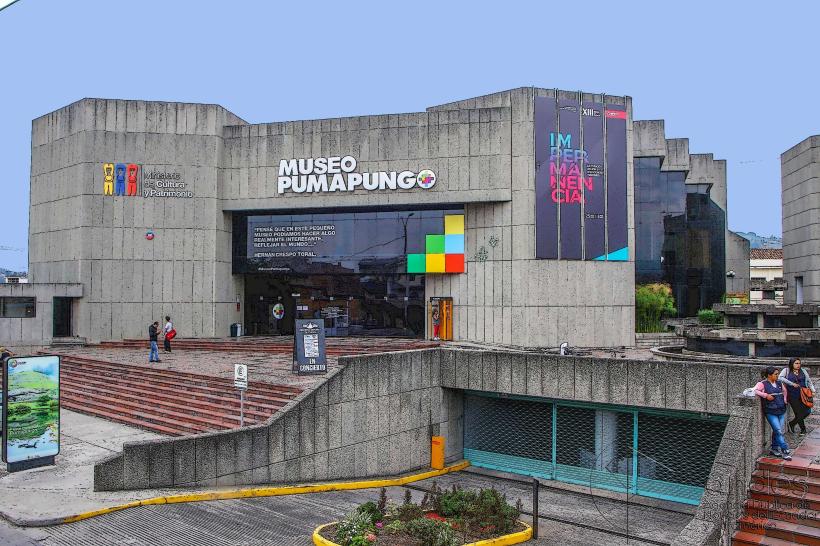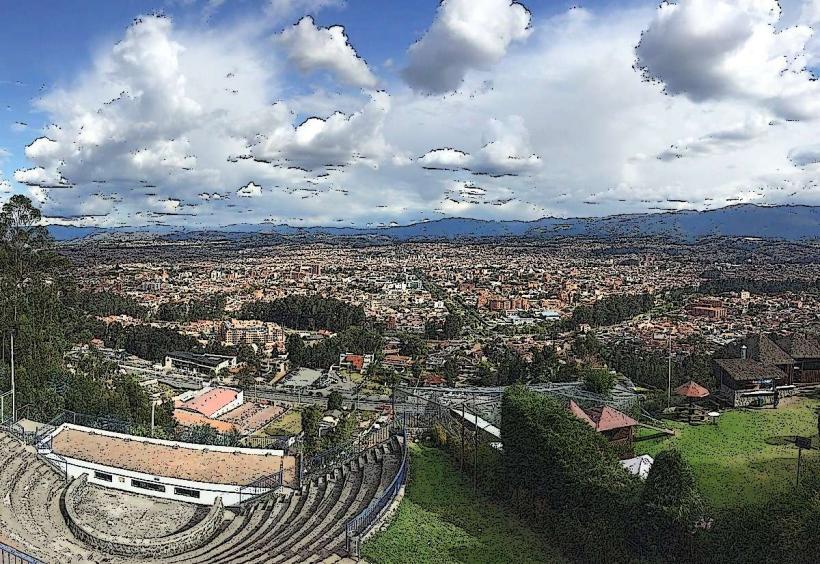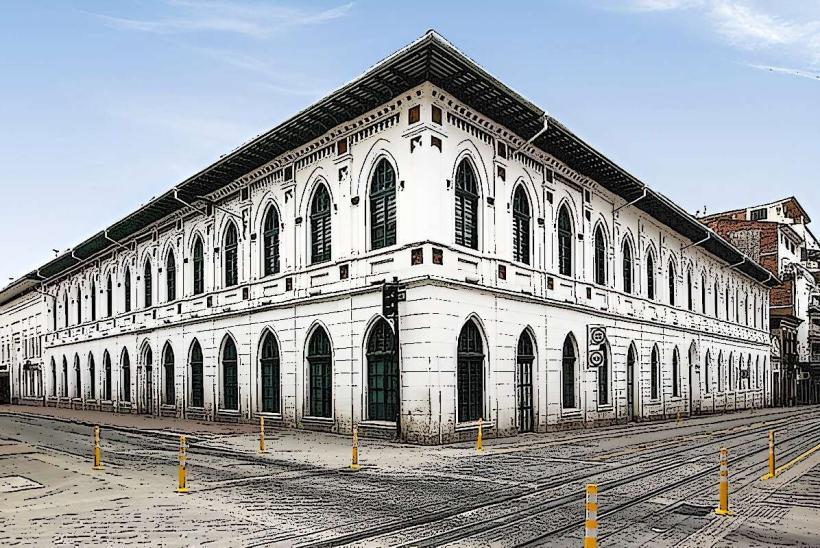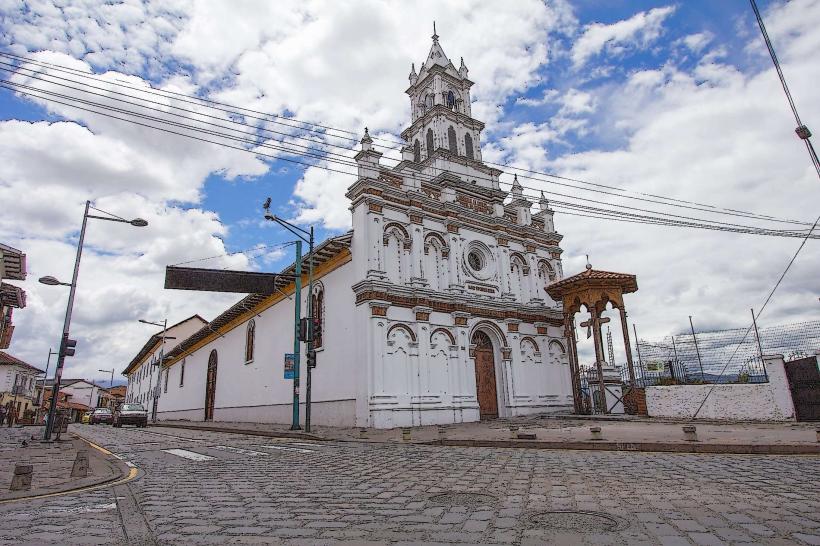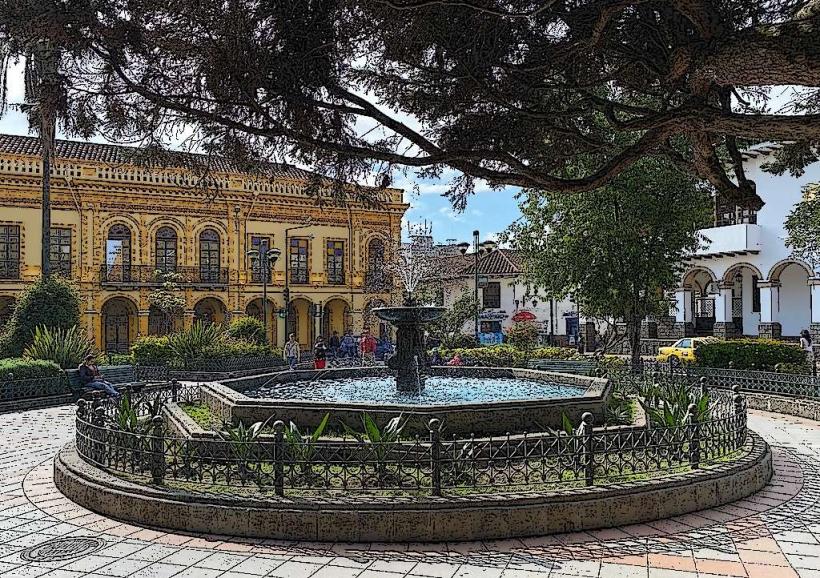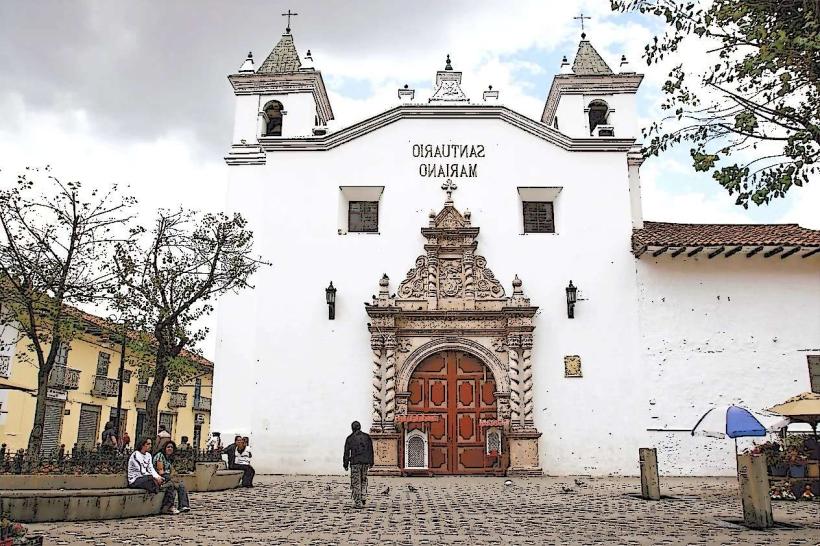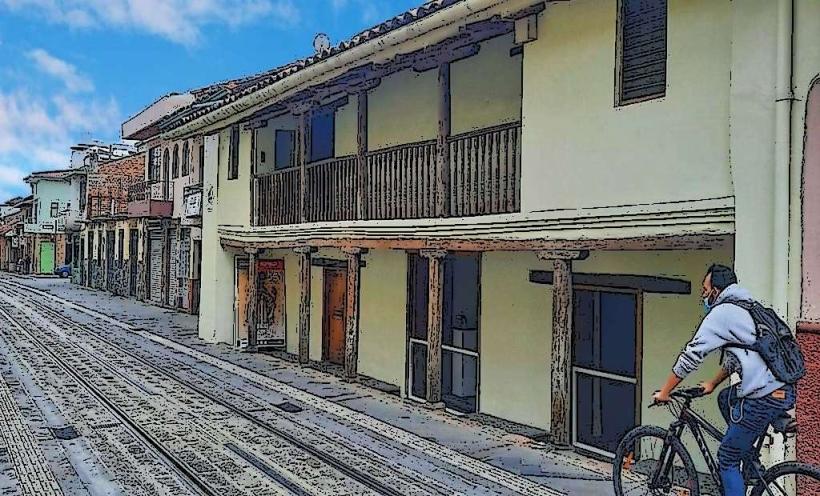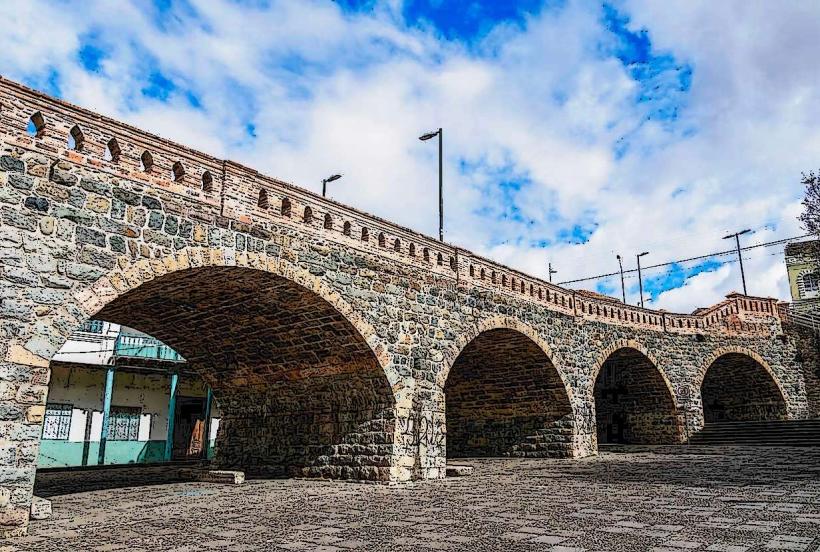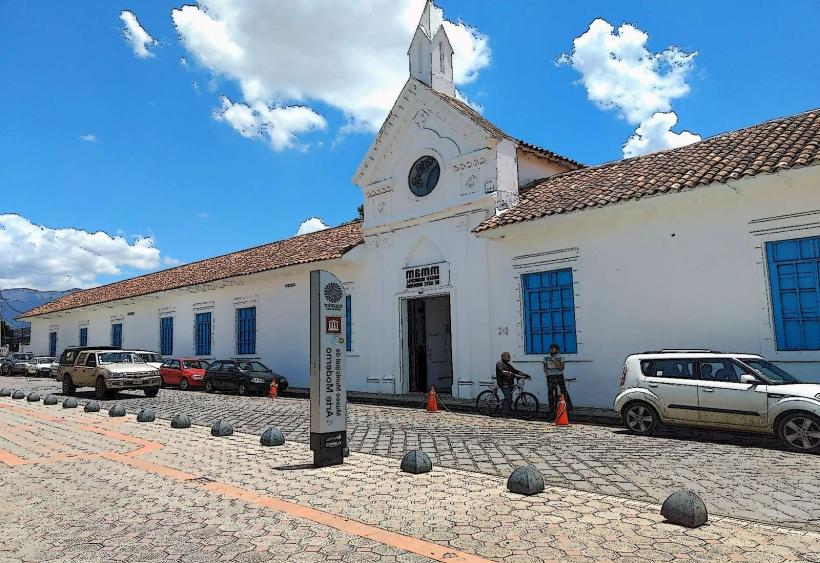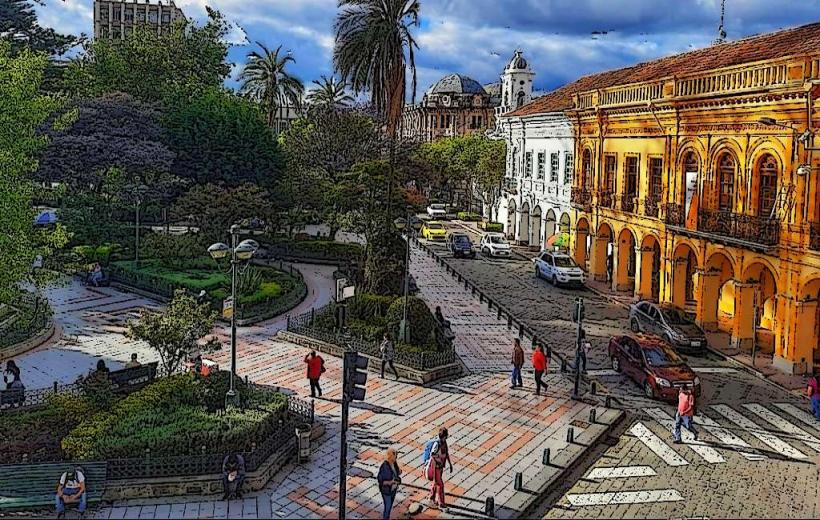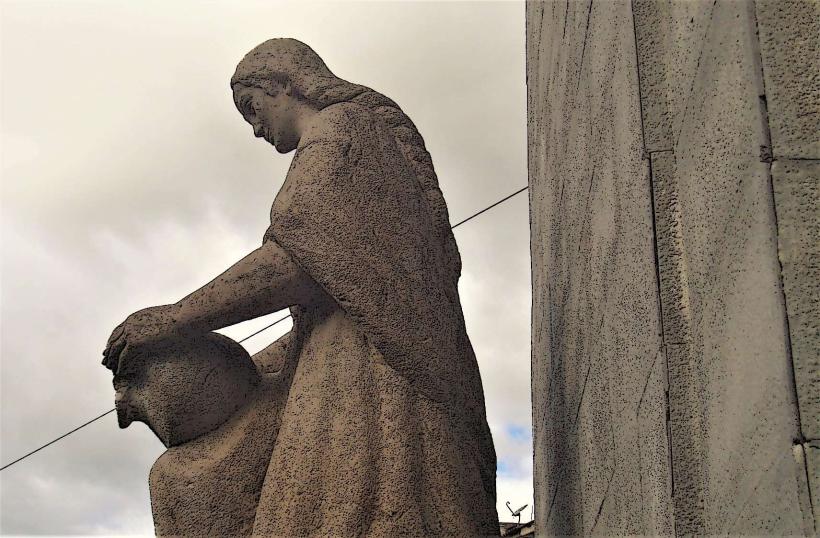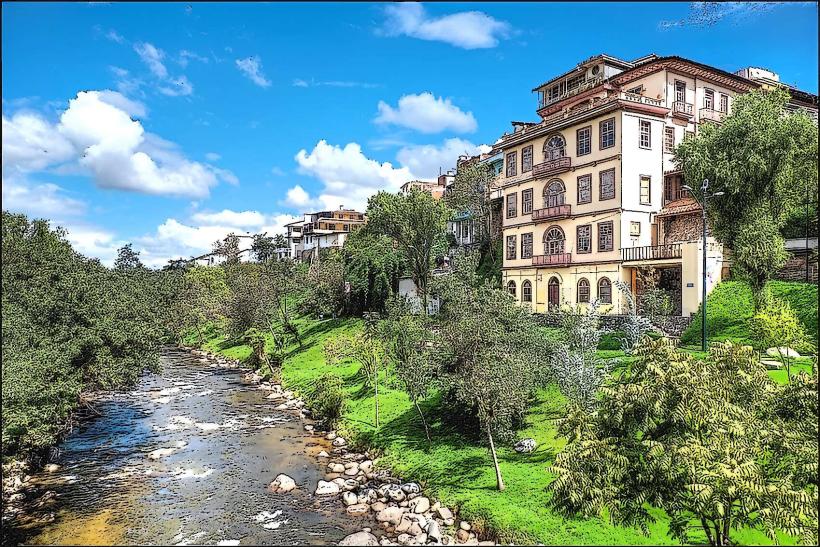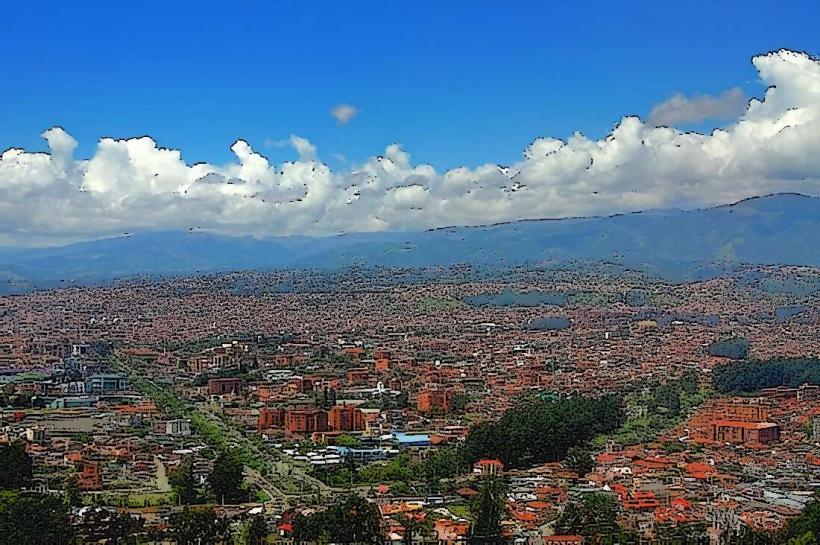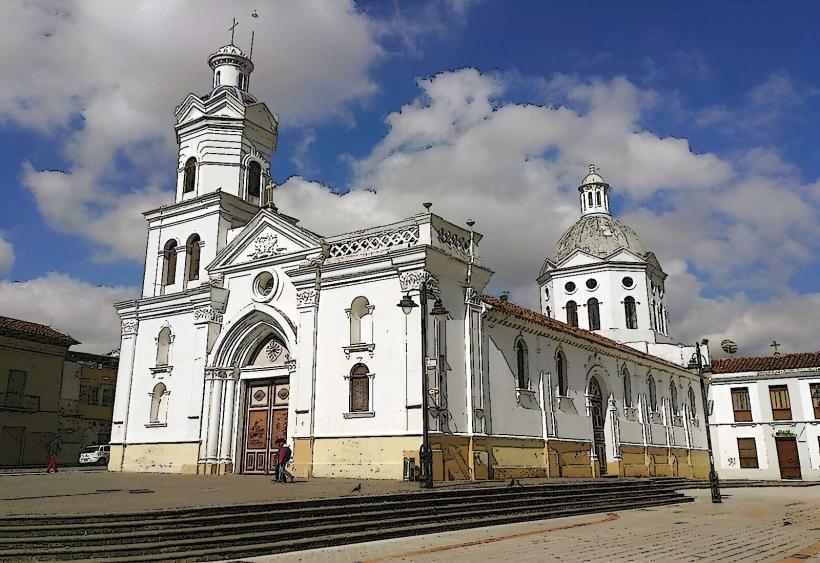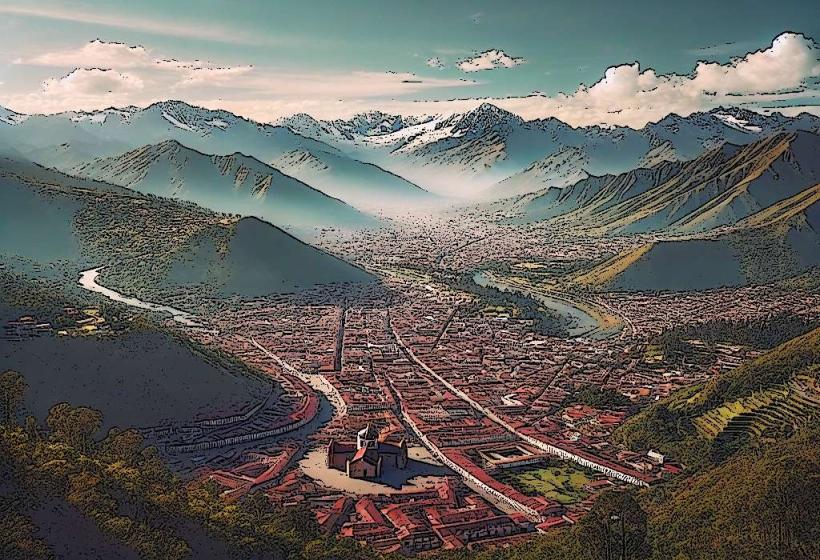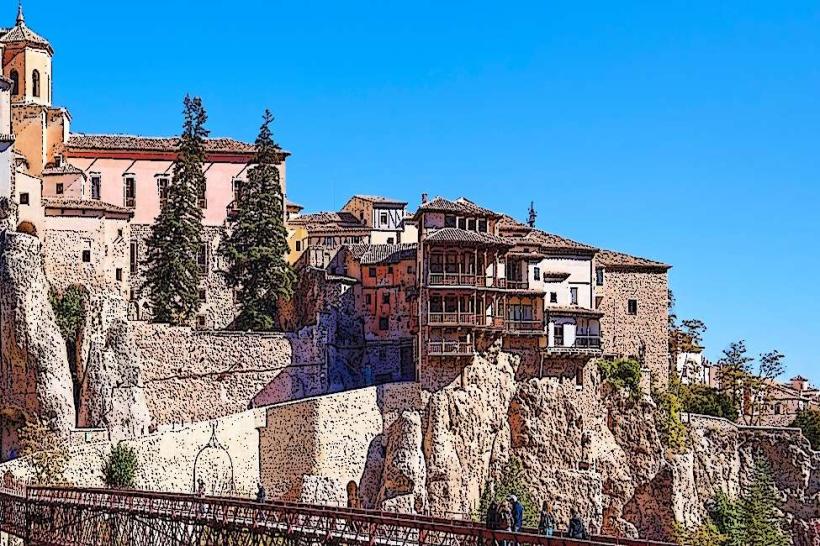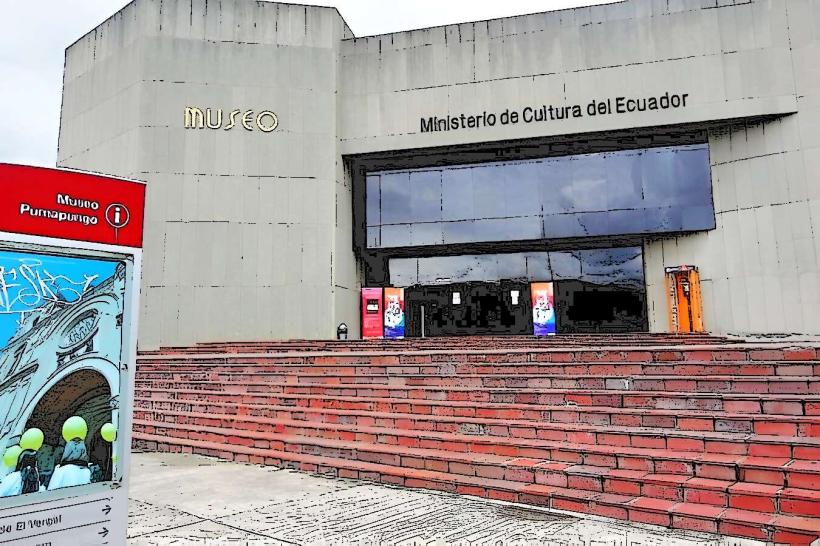Information
Landmark: La Catedral de CuencaCity: Cuenca
Country: Ecuador
Continent: South America
La Catedral de Cuenca, Cuenca, Ecuador, South America
La Catedral de Cuenca, also known as Catedral de la Inmaculada Concepción (Cathedral of the Immaculate Conception), is one of the most iconic landmarks in Cuenca, Ecuador. It stands as a magnificent symbol of the city’s religious heritage, colonial architecture, and cultural history. Located in the heart of Cuenca’s central square, Parque Abdón Calderón, the cathedral is a significant historical and architectural treasure, drawing visitors from around the world.
History and Significance
Construction of the cathedral began in the mid-19th century and continued for several decades. The cathedral was built to honor the Immaculate Conception (the belief in the Virgin Mary's purity and her birth without original sin), which was declared a dogma by the Catholic Church in 1854. The cathedral’s inauguration occurred in 1887, though construction was completed in phases, with some parts continuing into the early 20th century.
The cathedral is a central figure in the religious life of Cuenca. As one of the largest and most impressive churches in Ecuador, it has served as a center for Catholic worship for over a century. Its towering presence symbolizes the importance of the Catholic faith in shaping the identity of Cuenca, a city with deep religious roots and traditions.
Architecture and Design
La Catedral de Cuenca is a striking example of neo-Gothic and neo-Renaissance architecture, with some elements reflecting classical styles. The cathedral’s design is both grand and intricate, showcasing the technical skills and artistic achievements of the time.
Key features of the cathedral include:
Blue Domes: The most recognizable feature of the cathedral is its three large blue domes that dominate the skyline of Cuenca. These domes, adorned with ceramic tiles, are one of the most distinctive features of the church’s exterior. Their vibrant color contrasts beautifully with the surrounding colonial buildings and natural scenery.
Neo-Gothic Facade: The cathedral's facade is designed in a neo-Gothic style, with tall, pointed arches and decorative elements inspired by European Gothic architecture. The central entrance is framed by twin towers, giving the cathedral a sense of verticality and grandeur.
Interior: Inside the cathedral, visitors are greeted with a spacious nave, ornate altars, and stained-glass windows. The interior is breathtakingly beautiful, with intricate wood carvings, gilded elements, and symbolic religious artwork. The vaulted ceilings and detailed decorations contribute to the sense of reverence and awe that the cathedral inspires.
Main Altar: The main altar is particularly striking, with its elaborate decoration and sacred imagery. The altar serves as the spiritual center of the church, where religious ceremonies and services are held.
Cultural and Religious Role
La Catedral de Cuenca plays a significant role in the religious life of the city. It is the seat of the Archdiocese of Cuenca and the primary location for Catholic mass services, weddings, baptisms, and other sacred ceremonies. The cathedral is also an important place for pilgrimages and spiritual reflection, attracting both local residents and visitors seeking a sense of connection with the divine.
In addition to its religious functions, the cathedral has cultural significance as a historical landmark and an integral part of Cuenca’s identity. The church is regularly featured in festivals and celebrations that highlight Cuenca’s religious and cultural heritage, such as the Feast of the Immaculate Conception and Ecuadorian Independence Day.
Location and Accessibility
La Catedral de Cuenca is located in the heart of the city, right on the Parque Abdón Calderón, which is the main square in Cuenca’s historic center. Its central location makes it easily accessible for visitors exploring the city’s other landmarks, such as Parque Calderón, Museo Pumapungo, and Calle Larga.
- Accessibility: The cathedral is within walking distance of many of Cuenca’s other major attractions, making it a convenient stop for anyone touring the city. It is also easily accessible by taxi or public transportation.
- Opening Hours: The cathedral is generally open to visitors every day, though it may be closed for religious ceremonies, especially on Sundays and holidays. It is always recommended to check the specific hours before visiting.
- Admission: There is no entry fee to visit the cathedral, although donations are often welcomed to help maintain the building and its activities.
Visiting La Catedral de Cuenca
When visiting the cathedral, there are a few things to keep in mind:
Dress Code: As a religious site, visitors are encouraged to dress modestly when entering the cathedral. It is also customary to remain respectful and quiet while inside, as it is a place of worship.
Photography: Visitors are usually allowed to take photographs inside and outside the cathedral, but it is important to be mindful of religious services and avoid disturbing worshippers.
Guided Tours: For those interested in learning more about the history and architecture of the cathedral, guided tours are often available. These tours provide insights into the construction of the cathedral, the symbolism behind its design, and the religious traditions associated with the building.
Conclusion
La Catedral de Cuenca is not only a striking architectural masterpiece but also a living symbol of Cuenca’s deep-rooted religious and cultural identity. With its grand blue domes, elegant neo-Gothic design, and rich history, the cathedral stands as one of the most important landmarks in Ecuador. Whether you are a history enthusiast, an admirer of architecture, or simply looking for a peaceful place for reflection, La Catedral de Cuenca offers a unique and profound experience.



